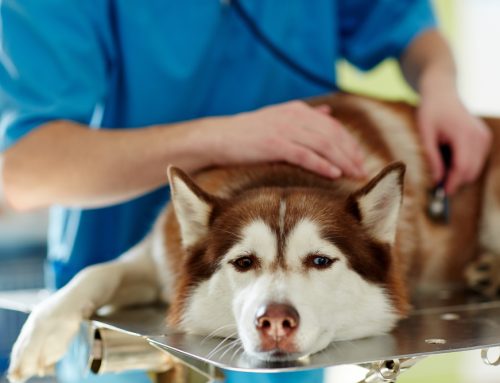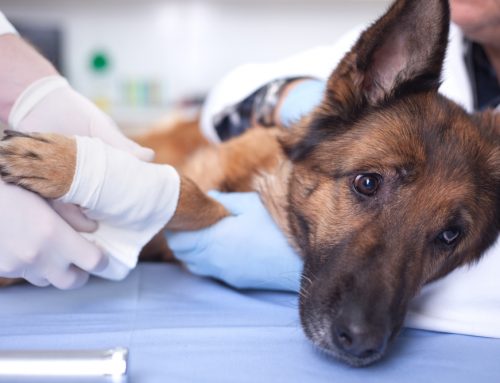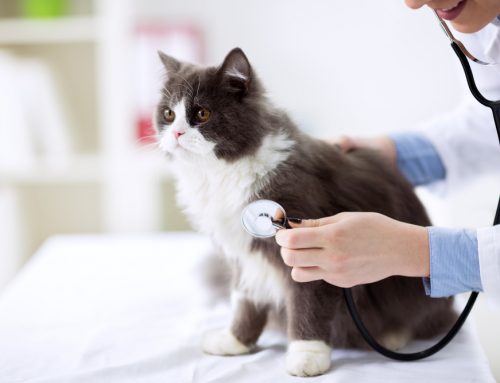Pets are living longer, thanks to advances in veterinary medicine and better owner care, but as your pet ages, they need extra care and attention. Our team at Highlands Veterinary Hospital wants to provide tips to ensure your pet remains happy and healthy.
#1: Ensure your senior pet receives regular veterinary care
Senior pets should receive preventive care at least every six months, because as your pet ages, they are more susceptible to developing significant health issues. Veterinarians at Highlands Veterinary Hospital will perform a thorough physical exam. We will recommend diagnostics, including bloodwork and urinalysis, to assess your pet for medical problems.
#2: Ensure your senior pet receives regular dental care
Dental disease is common in senior pets, and can cause them significant pain and discomfort. This condition can also contribute to problems affecting their heart, liver, kidneys, and lungs. Bring your pet to Highlands Veterinary Hospital for regular dental cleanings, to keep their gums and teeth healthy.
#3: Ensure your senior pet is not in pain
Arthritis is common in senior pets. It can cause pain and mobility issues and sadly often results in end-of-life decisions. If your pet is experiencing pain, they may show signs that include decreased appetite, unwillingness to move, inability to jump on surfaces, reluctance to go up stairs, vocalization, and lethargy. Our veterinary professionals can help alleviate your pet’s pain with supplements and prescription medications.
#4: Ensure your senior pet stays active
Senior pets may not be as active as they once were, but they still need regular exercise to stay fit and healthy. Swimming is a great way to keep your senior pet physically active, without impacting their joints. Every pet is different, and an exercise regimen should be individually tailored to your pet.
#5: Ensure your senior pet is at a healthy weight
As your senior pet slows down, weight gain may occur. Additional weight can cause significant health issues, including diabetes mellitus, cancer, respiratory disorders, arthritis, and kidney disease. You can assess weight by using a body conditioning scoring (BCS) system to evaluate their status. In addition to ensuring your senior pet receives regular exercise, ensure their diet compensates for their more sedentary lifestyle. Pet Nutrition Alliance has a calorie calculator that we like. It will help to determine your pet’s estimated energy requirements.
#6: Ensure your senior pet stays mentally engaged
Cognitive dysfunction is a common issue affecting senior pets. Oxidative brain damage causes issues similar to Alzheimer’s disease in humans. Signs include:
- Disorientation — Pets may become lost in familiar places, or become confused easily.
- Abnormal interactions — Pets may not socialize as much with their family members or other pets.
- Sleep cycles — Pets may sleep more during the day, but be active and possibly vocalize during the night.
- House soiling — Pets may start eliminating inappropriately in the house, or outside the litter box.
- Activity changes — Pets may become less active.
- Anxiety — Pets may exhibit signs of stress and anxiety.
- Learning and memory changes — Pets may not recognize family members and may forget well-known commands.
Keeping your senior pet mentally engaged can help counteract cognitive dysfunction. Methods include teaching them new, tricks, using food-puzzle toys to feed a meal or a treat, and providing new sights, sounds, and smells to keep them interested.
#7: Ensure your senior pet’s environment is senior pet friendly
Your senior pet may be affected by conditions that impair their mobility or vision, but a few alterations to your home can improve their quality of life.
- Ramps — If your pet has difficulty jumping on surfaces, a ramp can help them access their favorite spot on the couch or bed.
- Essential items — Ensure food and water bowls and litter boxes are easily accessible. You can also add additional litter boxes, to ensure your senior cat has access on every floor of your house. If your pet is having difficulty reaching the food or water bowl, raise the bowls to help prevent neck pain. Consider a litter box with lower sides, if your senior cat is having difficulty accessing the box.
- Orthopedic beds — Provide your pet with a well padded resting area that will comfort their aching joints.
- Stairways — If your pet has vision loss, block off access to stairs, to prevent them from falling.
- Furniture — Avoid rearranging your furniture, which can confuse pets affected by vision loss and cognitive dysfunction.
- Lighting — Provide extra lighting at night, to help your pet feel more secure moving around the house.
#8: Ensure you spend time with your senior pet

Your pet relies on you for love and support, and needs your presence to feel safe and secure. Include your pet on family outings, and spend time each day petting and grooming them. This will strengthen your bond, and provide lasting memories.
Senior pets are special family members, who should be treated with the care and attention they deserve. If you are concerned about your senior pet, or you would like to schedule a preventive visit, contact our American Animal Hospital Association (AAHA)-accredited team at Highlands Veterinary Hospital.







Leave A Comment